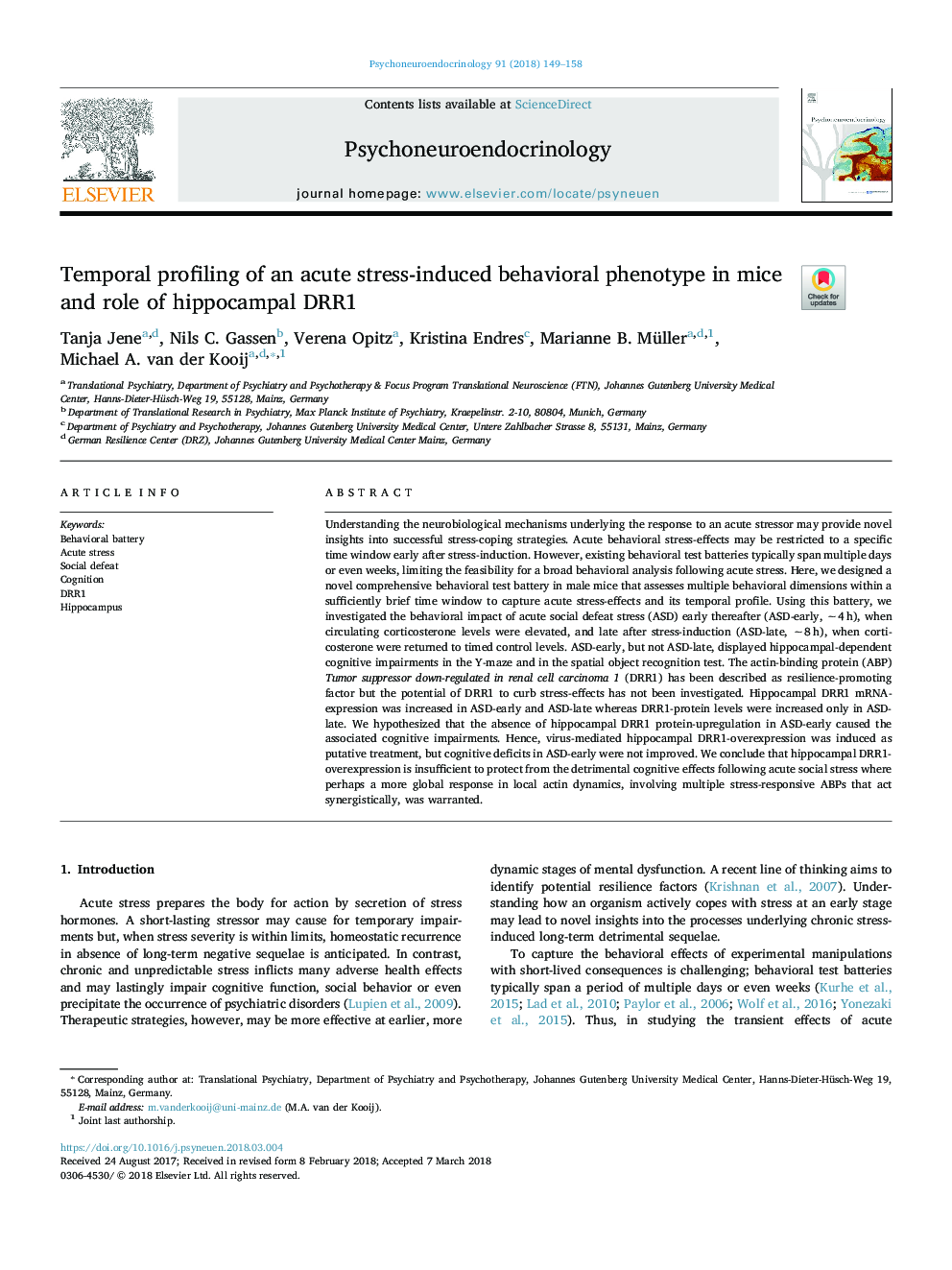| Article ID | Journal | Published Year | Pages | File Type |
|---|---|---|---|---|
| 6817685 | Psychoneuroendocrinology | 2018 | 10 Pages |
Abstract
Understanding the neurobiological mechanisms underlying the response to an acute stressor may provide novel insights into successful stress-coping strategies. Acute behavioral stress-effects may be restricted to a specific time window early after stress-induction. However, existing behavioral test batteries typically span multiple days or even weeks, limiting the feasibility for a broad behavioral analysis following acute stress. Here, we designed a novel comprehensive behavioral test battery in male mice that assesses multiple behavioral dimensions within a sufficiently brief time window to capture acute stress-effects and its temporal profile. Using this battery, we investigated the behavioral impact of acute social defeat stress (ASD) early thereafter (ASD-early, â¼4â¯h), when circulating corticosterone levels were elevated, and late after stress-induction (ASD-late, â¼8â¯h), when corticosterone were returned to timed control levels. ASD-early, but not ASD-late, displayed hippocampal-dependent cognitive impairments in the Y-maze and in the spatial object recognition test. The actin-binding protein (ABP) Tumor suppressor down-regulated in renal cell carcinoma 1 (DRR1) has been described as resilience-promoting factor but the potential of DRR1 to curb stress-effects has not been investigated. Hippocampal DRR1 mRNA-expression was increased in ASD-early and ASD-late whereas DRR1-protein levels were increased only in ASD-late. We hypothesized that the absence of hippocampal DRR1 protein-upregulation in ASD-early caused the associated cognitive impairments. Hence, virus-mediated hippocampal DRR1-overexpression was induced as putative treatment, but cognitive deficits in ASD-early were not improved. We conclude that hippocampal DRR1-overexpression is insufficient to protect from the detrimental cognitive effects following acute social stress where perhaps a more global response in local actin dynamics, involving multiple stress-responsive ABPs that act synergistically, was warranted.
Related Topics
Life Sciences
Biochemistry, Genetics and Molecular Biology
Endocrinology
Authors
Tanja Jene, Nils C. Gassen, Verena Opitz, Kristina Endres, Marianne B. Müller, Michael A. van der Kooij,
